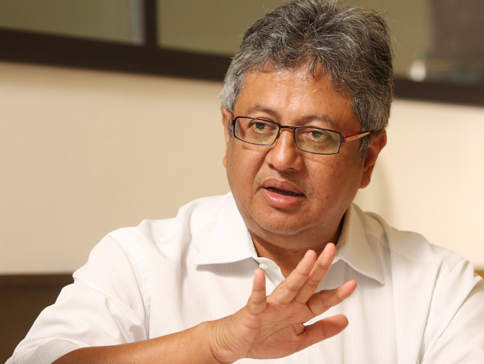KUALA LUMPUR, Aug 14 — Datuk Seri Najib Razak’s bid to reform Umno must begin by eliminating the abuse of pro-Bumiputera affirmative action has led to the rise of “mediocre” Malays and blighted the country with equally-middling institutions, according to Datuk Zaid Ibrahim.
Introduced to promote economic progress within the group, the former Cabinet minister noted that such policies as well as Article 153 of the Federal Constitution that guarantees the special position of the Malays and other Bumiputera groups, have since been co-opted to promote racial primacy.
“Instead of viewing it as a safety net to address the weakness of Bumiputeras, our primary policy today is one of Malay/Muslim first,” Zaid wrote in an essay titled “The Prime Minister Can Do It!” that was sent to The Malay Mail Online.
“On a more practical level, this policy of Malay/ Muslim first is detrimental not only to those excluded by the discrimination; it also jeopardises the full potential of the Malays.
“It has resulted in mediocre individuals holding positions unsuited for the job,” added the former de facto law minister during Tun Abdullah Ahmad Badawi’s administration.
In the just-released book, “Awakening: The Abdullah Badawi Years in Malaysia”, Abdullah noted resistance to Najib’s reforms came mainly from Umno.
Last week, Najib appeared to agree with the assessment, but noted that the entire process would take time, possibly even a “few generations”.
But Zaid pointed out that the scope of special preferences for the Malays in the Federal Constitution has been “unilaterally expanded to justify discrimination”.
“This is certainly not the plan in which this country was founded; in fact no country in the world would have such a policy,” he wrote.
“Developed countries run their government (being a democracy with citizens enjoying full rights and responsibilities) based on the acceptance that all the citizens have equal rights and opportunities,” Zaid added.
The former Umno leader also noted that the promotion of the policy has allowed “mediocrity has seeped into our institutions”.
“For example, if we have a mediocre vice-chancellor, or mediocre civil servants or police chiefs, the people most affected are the Malays as they comprise the largest ethnic group in the country,” he said.
“It’s in the interest of the Malays and the country to have leaders of ability and calibre, regardless of ethnicity,” stressed Zaid.
Zaid’s essay follows his sharp criticism of the country’s race-based policies last Friday, where he said that Malaysia was deluding itself into thinking it could become a developed nation with the existence of such policies.
When Najib took office in 2009, he announced plans to spur economic growth by increasing transparency, promoting meritocracy, and rolling back pro-Bumiputera affirmative action policies.
But his ambitious reforms were derailed by right-wing elements within his own party and Malay rights groups.
Najib has yet to come up with significant steps to get rid of ethnic privileges that are viewed as benefiting the Malay elite, instead of the impoverished majority.
In his essay, Zaid also warned Najib to expect Umno to fight such reforms under the guise of protecting the Malays.
“To them, the Malays will never be ready because they themselves do not want such a policy.”
The onus was on Najib to convince them otherwise, Zaid said, while expressing confidence in the former’s ability to do so.
“Datuk Seri Najib is, after all, a young prime minister and has many years left to effect the changes,” he said.
“The Prime Minister has the resources to overcome the concerns of all Malaysians. Mindset and values don’t need generations to change if a leader can clearly articulate what this change means,” he added.



















